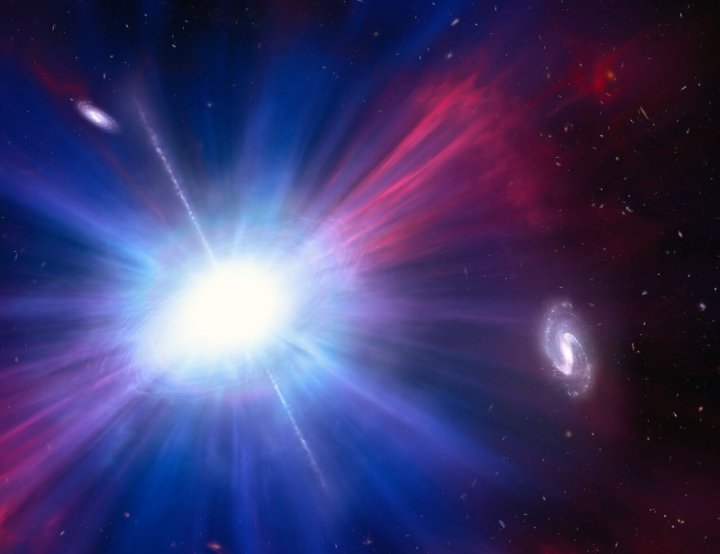The Hubble Space Telescope recently observed something strange: an extremely bright, extremely fast flash of light that popped up in the middle of nowhere. Technically known as a Luminous Fast Blue Optical Transient (LFBOT), the odd thing about this rare event was that it occurred outside of a galaxy.
These flashes have been observed only a few times since they were discovered in 2018, and this particular event was named The Finch. Hubble was used to track the flash’s origin point, which was in between two galaxies: 50,000 light-years away from a larger spiral galaxy and around 15,000 light-years away from a smaller galaxy. This has astronomers puzzled, as these events were thought to issue from inside galaxies where stars are forming — but this event happened far away from any star-forming region.

“The Hubble observations were really the crucial thing. They made us realize that this was unusual compared to the other ones like that, because without the Hubble data we would not have known,” said lead researcher Ashley Chrimes in a statement.
The flash was also observed using other instruments like the ground-based Gemini South observatory, which found that the temperature of the Finch was an incredible 20,000 degrees Celsius (approximately 36,000 Fahrenheit).
These flashes brighten and dim in just a few days, compared to other brief astronomical events like supernovas which tend to brighten and dim over a period of months. Scientists thought that LFBOTs might be created by a particular and rare type of supernova that happens to very large and short-lived stars. As these stars don’t last for long, they tend to be found close to stellar nurseries where they are born. But this new flash challenges that concept.
“The more we learn about LFBOTs, the more they surprise us,” said Chrimes. “We’ve now shown that LFBOTs can occur a long way from the center of the nearest galaxy, and the location of the Finch is not what we expect for any kind of supernova.”
It could be that the flashes are not in fact caused by supernovas but are instead caused by stars being ripped apart by black holes. Or it could be that a fast-moving star was passing between the two galaxies and exploded during its journey. As the events are so rare, it’s hard to tell at this stage of research.
“The discovery poses many more questions than it answers,” said Chrimes. “More work is needed to figure out which of the many possible explanations is the right one.”
Editors’ Recommendations
Services Marketplace – Listings, Bookings & Reviews